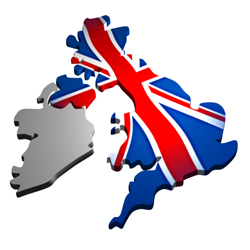UK General Election 2015 - what are the possible outcomes?, UK election 2015,General Election 2015,UK opinion poll
- Details
- Last Updated: Wednesday, 08 April 2015 14:59
UK General Election 2015 - what are the possible outcomes?

With every General Election a political party is looking for an outright majority. The number of seats needed to achieve this is 326, and as this didn't happen in 2010, a coalition government was formed between the Tories and the Liberal Democrats.
In this General Election, the first scenario might be that the Tories gain 24 seats. This would give them an overall majority as they currently have 302 seats in the House of Commons.
The second possible scenario might be that Labour get a majority.However, this would be a harder task for the party as they would need to gain 70 seats to take power. This has only happened once since the Second World War, and that was whenTony Blair became Prime Minister in 1997.
Other parties such as the SNP, Ukip and the Green Party are also looking to take more seats away from the two main political parties.

Due to reduced support for both Labour and the Conservatives over the past 60 years, this year's election could see a hung parliament. This is when a party is unable to secure an overall majority in the House of Commons.
In this situation the Prime Minister gets the first chance to form a government, but if he can't, he will have to resign and the Opposition can attempt to form a coalition.
This brings us to the third scenario, which could see another coalition being formed after this election. If the Liberal Democrats are able to hold enough seats, renewing the Tory-Lib Dem coalition may be one choice for David Cameron.
A fourth scenario could also see the Liberal Democrats forming a coalition with Labour. However, if this fails it could pave the wave for a different scenario known as a rainbow coalition.
This is when the government sits without a majority but is backed on key bills in exchange for specific policies. Therefore, if the voting goes their way, the minor parties could be hugely influential. They get to decide who they partner with and could therefore shape the future parliament.
src:telegraph.co.uk


